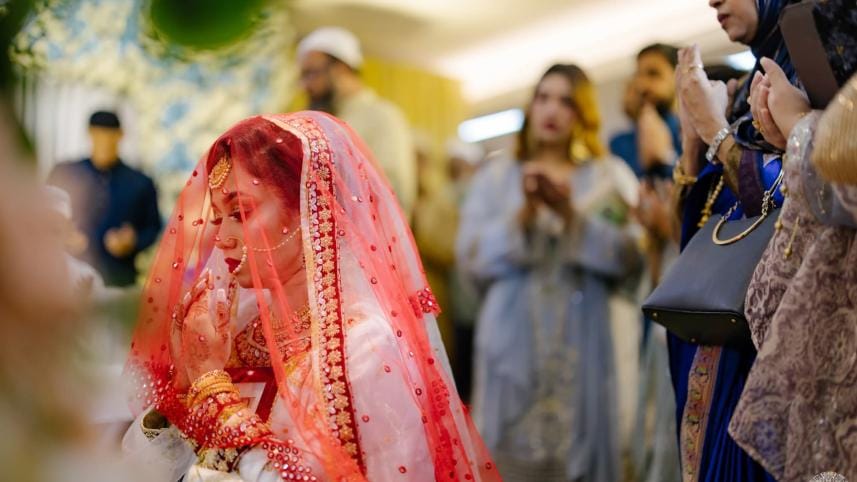What if women used the Nikah-Nama to demand equality?

Marriage customs in Bangladesh often come wrapped in layers of tradition, ceremony, and unspoken gender expectations. But what would happen if a bride, right before stepping into the threshold of her 'forever,' decides to negotiate her role with sheer wit? In this short story, "Qubool?" a wedding in Dhaka takes an unexpected turn when the bride's answer to the Qazi's question turns into a light-hearted yet sharp reminder that equality can start right at the altar.
The day was dated 14 December, 2018. A winter afternoon in Dhaka brought blustery winds that had people clutching shawls, sweaters, and jackets for warmth.
In the northernmost part of the city, Faiza sat on her bed in silence, head pressed against warm pillows. For two hours, she hadn't moved, trying to calm the nervous throb in her chest.
The quiet was shattered by the sudden rush of a large crowd into her room. Overdressed guests jostled for space; among them, Sima aunty glittered in gold-plated jewellery over her crimson saree. Faiza's gaze flickered briefly to her sister; they quickly exchanged looks before her eyes landed back on the floor.
Moments later, a tall, dark-bearded man in a white turban and black sherwani entered. It was the Qazi, the Islamic judge. He looked at Faiza, sneered, and asked, "Are you quite ready for your lifetime of unquestionable commitment, dear?"

Without missing a beat, Faiza smiled calmly. "Of course, uncle! Just as ready as he is to wash my dishes from tonight!"
The room froze. A wave of raised eyebrows and disapproving murmurs swept through the guests. Sima aunty's lips tightened. The Qazi shifted uncomfortably, tugging at his beard.
Faiza leaned in, voice still polite. "Clause number 17 of your register, uncle — parties can list special conditions as long as they don't break Shariah law. For me, it was simple. I can't handle slimy stuff in the sink, so my husband's agreed to wash the dishes."
The words hung heavy in the air, seeping through the room like a slow-spreading truth. Faiza's mascara-lined eyes glinted, her lips curling into a triumphant smirk. In that moment, she had quietly overturned the script of a patriarchal tradition.
Just before the aunties could recover, Faiza looked up, and with the slightest trace of mischief, said her final word: "Qubool."
As much as we try to promote women empowerment in a developing Bangladesh, only two to three per cent of women appear aware about the unquestionable right that religion provides them with: the right to demand, make amendments to, negotiate for almost anything through the official contract (nikah-nama), before binding into the most important and life-changing relationship of one's life: marriage.
It is now time to advocate for real changes for women in this country — by publicising the right that is already been granted to them without having to ask (for once): the right to curate the marriage document as per their own demands, protecting peace and sanity, even if it is to some extent.
Photo: Courtesy
The writer is a Senior Economics and Business Faculty at Scholastica School in Dhaka.



 For all latest news, follow The Daily Star's Google News channel.
For all latest news, follow The Daily Star's Google News channel.
Comments